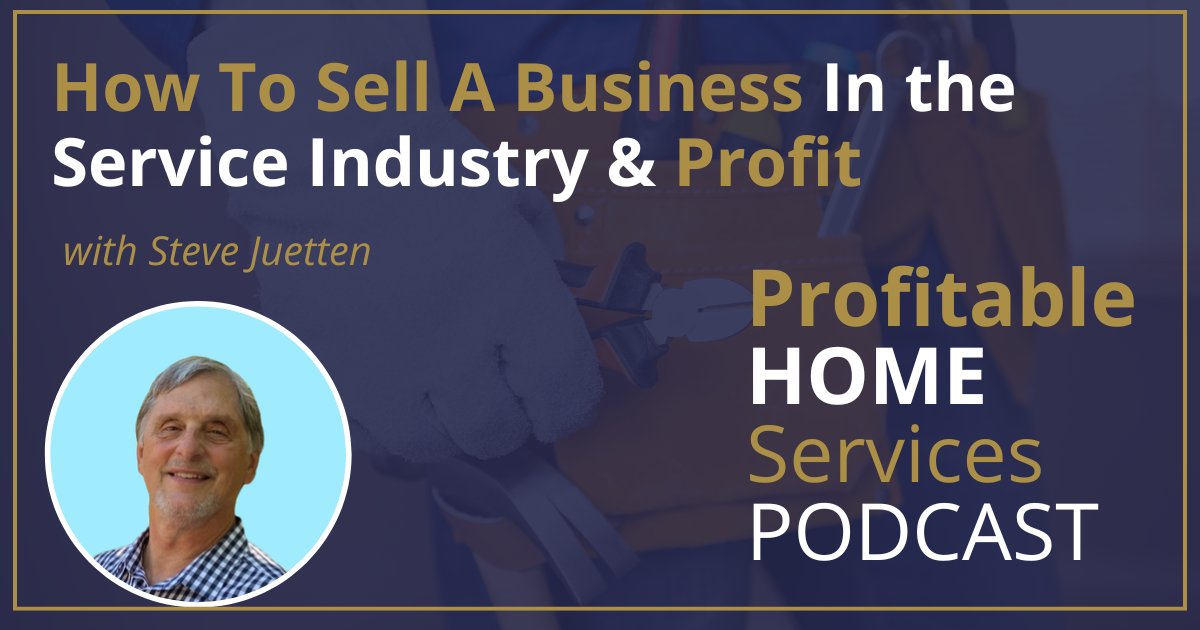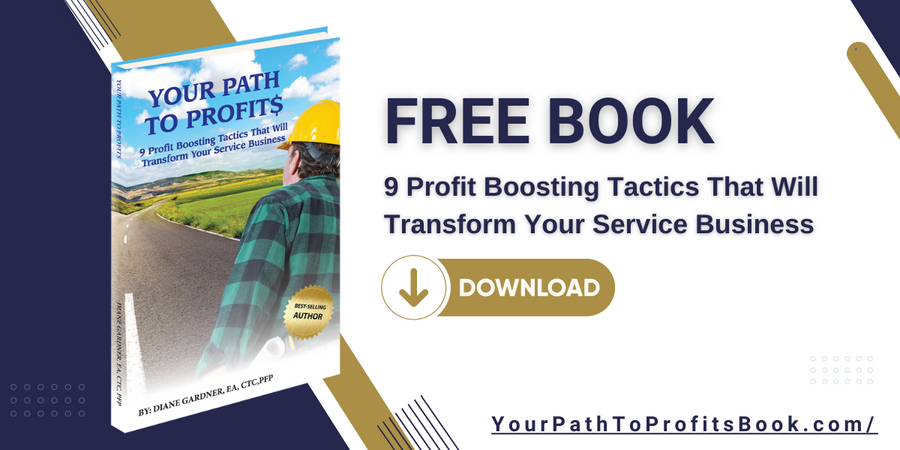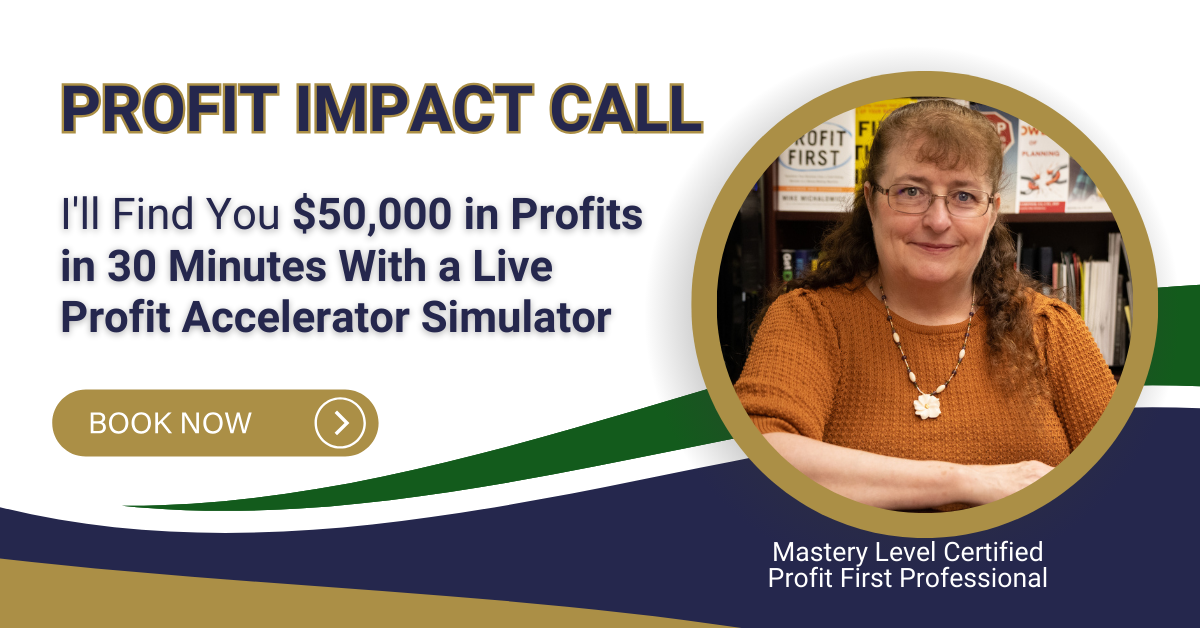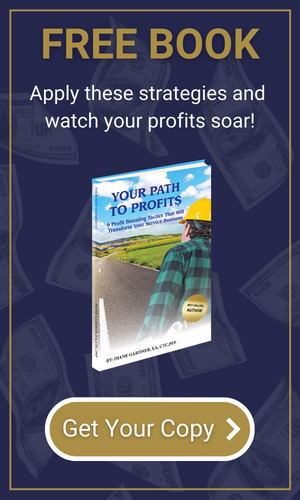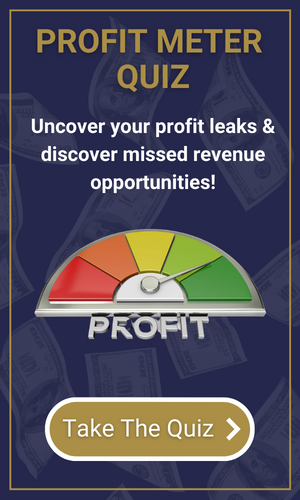I am delighted to welcome back Steve Juetten! Last time we talked about making the decision to sell your business and the right timing to sell. This week we dove into the practical steps to exiting a business successfully. Steve covers essential aspects like business valuation, assessing the business from a buyer’s perspective, improving profitability, finding a buyer, conducting due diligence on the buyer, and planning for life after selling the business. In a nutshell he’s going to share how to sell your business and profit!
What you’ll learn:
- The crucial step of getting a business valuation to realistically know it’s worth
- How to assess the business from a buyer’s standpoint to find areas for improvement
- How to fix profit leaks like Seller Discretionary Expenses (SDE) to increase the business’s value and attractiveness to buyers.
- Why you should conduct due diligence on potential buyers
- What kind of plans to make for your life after selling the business
Key Moments:
[00:14] Mastering the Art of Selling Your Business
[09:02] Finding Buyers and Navigating the Sales Process
[17:10] Understanding Legal and Tax Implications
[20:47] The Importance of Due Diligence in Selling a Business
[26:11] Navigating the Emotional Roller Coaster of Selling a Business
[34:22] Preparing for Life After Selling Your Business
[42:38] Empowering Home Service Businesses to Be Proudly Profitable
Mastering the Art of Selling Your Business: A Comprehensive Guide
Steve discusses the key steps involved in selling a business successfully. He emphasizes the importance of starting with an informal valuation to understand the true worth of the business. Next, he highlights the significance of assessing the business from a buyer’s perspective, identifying strengths, weaknesses, opportunities, and threats. We talked about improving profitability by evaluating various aspects of the business such as teamwork, job profitability, vendors, and expenses. This is crucial to attracting buyers.
Finding Buyers and Navigating the Sales Process
Steve gives us his step-by-step process of selling a business, which includes getting an evaluation, self-assessment, improving the business over 2 to 3 years, and then marketing and selling the business. He emphasizes the importance of planning ahead to maximize the business’s value. I was particularly interested as he covered strategies for finding buyers, such as looking internally within the team, approaching competitors, attending industry events, and targeting businesses that complement the current business. There is a real significance in having a compelling story to attract potential buyers.
Understanding Legal and Tax Implications
Steve really stressed the importance of having an attorney and a CPA when selling a business. An attorney is critical for legal expertise, drawing up contracts, due diligence, and structuring agreements to avoid future liabilities. A CPA is essential for understanding the tax implications of selling a business, such as capital gains tax and ordinary income tax. Different tax implications arise based on whether it’s a stock sale or an asset sale. We also highlighted the role of tax strategies in reducing tax liabilities. Real-life examples and the impact of state-specific taxes, like the capital gains tax in Washington, are mentioned. Utilizing professionals like attorneys and CPAs can significantly decrease tax liabilities and ensure a smoother business sale process.
The Importance of Due Diligence in Selling a Business
Steve helped us see how vital it can be for sellers to conduct due diligence on potential buyers before selling a business. He shares a cautionary tale of a seller whose business was returned due to buyer default, emphasizing the need for thorough investigation into the buyer’s financial stability, payment methods, business practices, and treatment of employees. Steve highlighted the significance of crafting non-disclosure agreements and engaging attorneys to facilitate due diligence processes. He also underscored the risk of earnouts and the necessity of upfront payments.
Navigating the Emotional Roller Coaster of Selling a Business
We discussed at length the challenges and emotional roller coaster of selling a business, including the difficulty of running a business while trying to sell it, the emotional ups and downs experienced during the process, the importance of aligning core values with potential buyers to retain customers, and the evolving legality and ethical considerations of non-compete agreements in business sales.
Preparing for Life After Selling Your Business
One thing Steve kind of surprised me with was the importance of planning for life after selling a business. He pointed out the need to consider what to do next and not let the identity tied to the business hinder your transition. He shared personal experiences and advised business owners to have a clear plan for the day after selling their business, likening it to planning for the day after a wedding. Business sellers need to establish a new identity and routine. There are real differences in adaptability between men and women in such situations that should be taken into consideration in those plans.
Empowering Home Service Businesses to Be Proudly Profitable
Steve drew my attention to a unique profit leak related to seller discretionary expenses, shedding light on how it can impact a business sale. We conclude with information on accessing resources for business exit strategies from Steve while I emphasized the importance of being proud to be profitable.
About Steve: Steve Juetten is the exit wizard for small to medium size business owners. He’s the secret sauce to supercharge effective and profitable business exits through careful planning and nimble execution. Drawing from the lessons he learned in the sale of his own financial advisor practice, Steve is a go-to collaborator to his fellow entrepreneurs looking to win on the way out. Steve possesses exceptional mediation and facilitation skills, excelling in interest-based negotiation to orchestrate win-win scenarios for all parties.
Connect With Steve:

